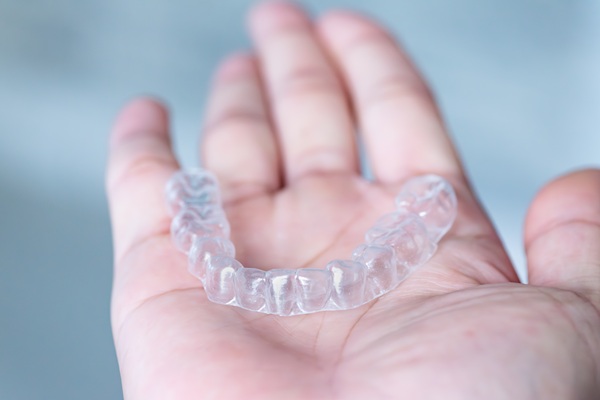Dental Crowns – How to Identify When Something Is Wrong

Dental crowns are a popular option for restoring and protecting teeth. A crown is a cover placed over a tooth that is badly decayed or damaged. It is usually referred to as a cap. A crown can help restore the shape and appearance of your tooth.
Problems that can develop with dental crowns
Crowns are often recommended by dentists to solve a variety of problems. There are many different types of crowns available. Permanent crowns can be made from all metal, stainless steel, all ceramic, all resin or porcelain-fused-to-metal. However, several problems can develop with dental crowns.
Sensitivity or discomfort
A newly crowned tooth may be sensitive after the treatment. This is usually immediately after the anesthesia starts to wear off. If a crowned tooth still has a nerve in it, a patient can experience some heat and cold sensitivity. If a person notices pain or sensitivity when biting down, it could mean that the dental crown is too high. If this happens, a patient should contact the dentist. A dentist can easily fix this problem.
Loose crown
There are cases where the cement may wash out from under the crown. This usually allows the crown to become loose. Bacteria can also leak in and cause decay to the remaining tooth. If the crown seems loose when a person chews or if there is an unusual odor around the tooth, a patient should contact a dentist.
Crowns fall off
It is not uncommon for crowns to fall off. This often occurs due to an improper fit or if the cement washes out from under the dental crown. If this happens a patient should get in touch with the dentist immediately. The dentist will provide instructions on how a person should care for the tooth and dental crown until the next dentist visit. The crown can then be cemented in place. If this is not possible, a new dental crown will need to be made.
Chipped crown
Dental crowns especially those made of porcelain can sometimes chip. A dentist can repair small chips. In such cases, the dental crown can remain in the mouth. However, if the chip is large or there is a lot of chipping, a patient may need a replacement crown.
Allergic reaction and dark line
Metals used to make dental crowns are often a mixture of metals. Some people have an allergic reaction to the metals or porcelain used in dental crowns. But, most times this is extremely rare. A dark line next to the gumline of a crowned tooth is not uncommon especially if a patient has a porcelain-fused-to-metal dental crown. This dark line is just the crown’s metal showing through. A dentist can replace the crown with a ceramic or porcelain one.
Takeaway
You may experience some complications after your crown is placed. Some problems include sensitivity, discomfort or an allergic reaction to the metals. Your crown can also chip, become loose or fall off. You should contact your dentist if any problems develop after getting a dental crown. Visiting your dentist regularly to have your crown checked is also recommended.
Are you considering getting dental crowns in the Lilburn area? Get more information at https://www.lilburnfamilydentistry.com.
Check out what others are saying about our services on Yelp: Read our Yelp reviews.
Recent Posts
A restorative dentist plays an important role in dental health and aesthetics. Damaged or missing teeth can impact a smile's appearance and cause problems for oral health and function. This is why restorative dentists offer a range of repair and replacement procedures to keep a patient's smile looking and feeling the way it should.A restorative…
ClearCorrect® is a teeth-straightening system that uses a series of transparent, custom-made, removable aligners to shift the teeth to their proper positions. It is an effective alternative to traditional braces and is an ideal choice for those seeking non-intrusive teeth-straightening treatment. Continue reading to find out how ClearCorrect can help correct your teeth’s alignment.The dentist…
Your restorative dentist can present treatments that can fix your dental issues. You can have a new smile after your appointment. Some dental problems may need more than one visit. Knowing when to see a restorative dentist can help you get the right procedure to bring back your smile and dental health.A restorative dentist can…
A broken tooth can affect both oral health and confidence. Whether caused by biting into something hard, an accident, or underlying decay, prompt dental care is essential to prevent further damage and restore normal function. Fortunately, modern dentistry provides several reliable treatments that repair structural damage and rebuild a natural-looking smile. A cosmetic, family, or…


